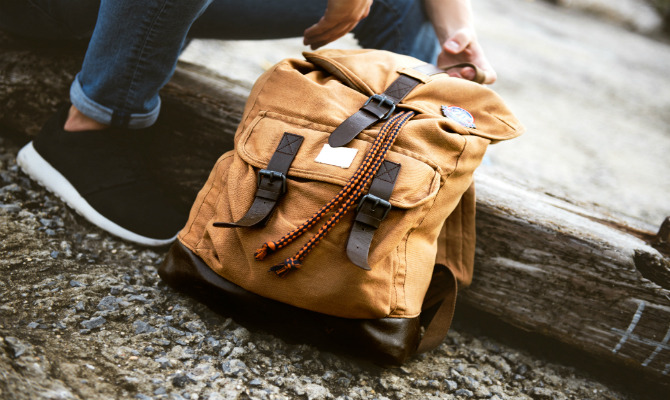How To Prepare An "Emergency Go-Bag"
The reality is that, with few exceptions such as in the event of a hurricane, people never know when disaster will strike. When that happens, however, they need to act quickly and calmly. The only way to ensure this will be true is preparation.
Regardless of whether your neighborhood is evacuated, you get stranded in the woods, or you need to run because burglars are in your home, it's a good idea to have an emergency bag hidden somewhere that will be of use in any situation.
You may be surprised that organizing a bug out bag won't break the bank. Items with multiple uses should be chosen over single use items whenever possible.
Choose a bag after you have the items
Make a list of everything you need to fit in an emergency bag and then pick the size. In any case, it should be light and contain enough supplies to keep you alive and strong for at least 3-4 days. Use a non-descript bag that doesn't attract attention and keep a waterproof cover.
Water
You can survive without food for weeks but only a few days without water. Always have extra bottles of water in your bugout bag. Keep in mind that boiled water is not always safe. Make sure it's filtered as well first. Know how to clean water the right way. Running water is always best if collecting in the wild. Items that can serve as filter are towels or shirts. Chemically contaminated water and stagnant dirty water won't be safe if only boiled.
Food
Pick non-perishable items that will keep you full for longer and won't take too much space. The best snacks for these kinds of situations are high-calories energy and protein bars. A few can provide more than 2,000 calories to keep you nourished and energized without the refined sugar and sodium. The ER Emergency Food Bar is supposed to last you for three days.
Medication
Keep an extra pack of your medication in the bag if you are taking any sort of prescribed drugs and you have to take your pills every few hours. The same goes for any medications if you have asthma or allergies.
Clothes
Prepare comfortable clothes you can wear in almost any situation – underwear, jeans, sweatpants, shirts, sweatshirts. You never know how long you're going to be away from home when you're dealing with an emergency. You probably won't need an evening gown and high-heel shoes, but sneakers and pants will do.
Money
You can never go wrong with having extra cash with you. Unless you got lost hiking in the wilderness, everything you don't have in your emergency bag and you need, you can buy. Bring cash because many places don't take cards, have a minimum, or don't have an ATM.
Heat source
An extra jacket or a sweatshirt will be the obvious choice. But if you can't bring them, make sure you at least put garbage bags in the emergency backpack. They can be a great way to stay warm. Wrap around you if it gets too cold. One advantage over clothes – garbage bags will keep you dry.
Cell phone and charger
You should always have an extra charger in your emergency bag. It'd be a good idea if you had an extra phone as well because you may lose yours, it may get stolen or broken. Being over-prepared can only work in your favor when you're in a tough situation.
First aid kit
A hiking survival kit must-haves include appropriate footwear, map and compass/GPS, extra water and a way to purify it, a whistle, a knife or multi-purpose tool, sun screen and sun glasses, and shoes. Choose a small general first aid kit with the essentials – bandages, antiseptic cream, hot and cold pack, sterile gauze pads, adhesive tape, tweezers, non-latex gloves, breathing barrier. Massive kits will take up too much space in the bag.
Knife
A tool you should always have that will allow you to escape is a knife. If you're going camping or hiking and take nothing else, take a knife. It could save your life. You can also use it for self-defense. Another option is a razor. It's small and can be easily concealed. It can be helpful to free you of many restraints.
IDs
Having your passport or a driver's license may not on the first item on your list but it's essential. Without some sort of an ID you won't have access to your bank account or claim assets you have. Also, if your neighborhood is evacuated because of a flood or fire, the only the authorities can help you find relatives and friends is if the agencies have records. That won't be possible without an ID.
More readings:
15 Survival Skills Everyone Needs to Know
